The Apartment Manager’s Guide to Smart Locks
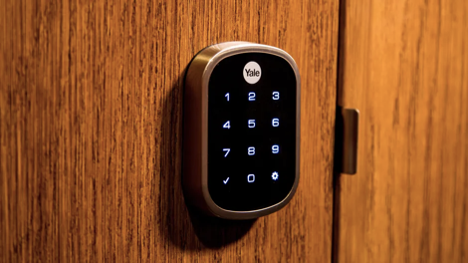
If you are looking to strengthen your smart home’s security, then these locks may be right for you. Here is our comprehensive guide to smart locks for your NYC Apartment.
Table of Contents
Why Smart Locks are Right for Your Apartment
Smart locks are the cutting edge of home security technology. Industry professionals say that in many ways, these locks are as safe as traditional locks, while also offering a host of other useful and convenient features. More and more traditional lock makers are jumping into the smart lock market, and leaders in tech are also collaborating and innovating to bring smart home devices to the next level. So, are you interested in upgrading your apartment with a smart lock? How do you know if a smart lock is right for you?
You want added security or an extra lock for your apartment door
Smart locks can give you extra piece of mind. They secure your apartment door like a traditional lock, but they also offer features like remote status updates, timed entries, and histories of every time your door was accessed. We have all been there: you are on the subway, or settling into your desk at work, only to feel a sudden flash of panic. Did you remember to lock the door? Instead of rushing home to check, or anxiously wondering all day if your apartment is secure, you can simply pull out your phone and open an app. Your smart lock can not only tell you if your door is locked, but also can show you a comprehensive history of every time your door has been used. This means you can track the comings and goings hired services like dog walkers or babysitters. You can even program in codes that allow access during certain hours. It’s a convenient and safe alternative to making multiple copies of keys.
You want to upgrade your Smart Home
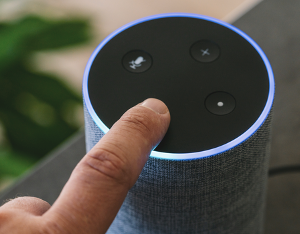
If you already have other smart home devices, then adding a smart lock to your front door is a no-brainer. A smart lock can work in conjunction with things like door sensors, security cameras, and smart doorbells. There are many smart lock options that can integrate with your existing devices, with some locks connecting to your hubs and others connecting directly to the cloud. If you already use any of the following smart home hubs and devices, then there is a lock out there that can connect to your already established network.
- Apple HomeKit and AppleTV
- Aoetec/Samsung SmartThings
- Amazon Echo and Alexa devices
- Google Home and Nest Hub
What to Look for in a Smart Lock—Protocol is Key
What you want in a smart lock will depend largely on your specific needs. For example, if you already have a smart home hub, you may want different features than if your smart lock is the only smart device you use in your apartment. Your budget will also play a big role in what features you can get, and what feels like the most worthwhile features to prioritize. No matter what, however, you want to make sure that you do your research and buy a lock that uses the correct protocol.
What is a protocol? It is like a language that your devices speak to each other. When devices communicate, they use different frequencies that vary based on wavelength. Since some smart locks only work on certain frequencies, it is important to make sure that you buy devices that use the correct protocol. Otherwise, the lock just won’t work as intended.
The most common protocols you will find on smart locks are:
Z-Wave Smart Locks
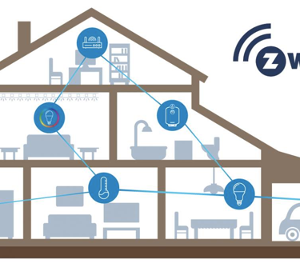
- Pros: More dependable and secure, good for smart home enthusiasts
- Cons: More expensive, requires other Z-wave smart devices to work well
Z-wave devices communicate on a low hertz frequency that is different from the Wi-fi you use for wireless internet. This means that your smart lock and other smart home devices will use a separate, less crowded protocol with which to communicate. Less devices using the same frequency to communicate means less of a chance to overload your connections. Think of it as a road with one lane vs. one with two—you are less likely to have a traffic jam if the cars are spaced out over two different paths.
Because of this separate “lane,” Z-wave devices tend to be more dependable, and less likely to encounter overloading problems. However, the drawback is that Z-wave locks tend to be more expensive than locks that use other protocols because the technology is proprietary. You will also need to buy a smart home hub that uses Z-wave, since Z-wave locks cannot connect directly with the cloud the way Wi-fi locks can. Overall, a Z-wave lock requires more investment, and because of the way the technology works, the more Z-wave smart home devices you have, the better your devices will tend to work over a larger range.
Wi-fi Smart Locks
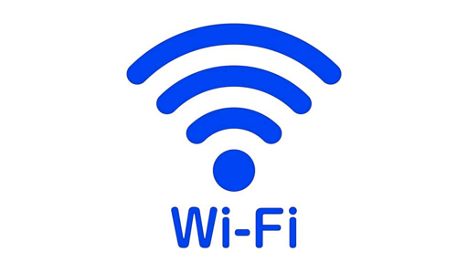
Wi-fi has some major benefits over Z-wave, but some drawbacks as well. ·
- Pros: Less expensive, more beginner-friendly, high bandwidth ·
- Cons: Less secure, less dependable, uses more energy
Unlike Z-wave’s proprietary frequency, Wi-fi runs on a higher hertz frequency that any manufacturer can use without licensing. So Wi-fi smart locks can be significantly less expensive than their Z-wave counterparts.
Devices that communicate using Wi-fi use the same frequency as other protocols like Zigbee and Bluetooth. If you have a lot of devices using Wi-fi at the same time, this can overload your network. Additionally, since Wi-fi has a high bandwidth, it can transfer a lot of data quickly, but uses more energy than lower bandwidth options like Z-wave and Zigbee. This drains your smart lock’s battery life.
Wi-fi smart locks do not communicate with a hub. Instead, they connect directly with the cloud. This is great for users who are not looking to make their whole apartment into a smart home, but instead just want to use one or two smart devices. However, this direct connection to the cloud is inherently less secure than communication with a smart home hub, some of which can just communicate locally—cutting out the cloud altogether.
Zigbee Smart Locks ·
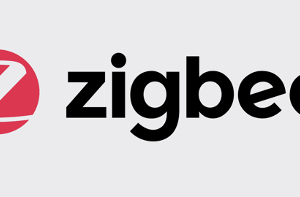
- Pros: Uses “mesh” networks, low energy ·
- Cons: Can interfere with your Wi-fi, low bandwidth
Zigbee’s strengths lie in its interoperability and ability to handle many, many devices on the same mesh network. Basically, you can use a lot of low energy smart devices in combination on this protocol. These devices will communicate with each other to relay your message back to the hub, much in the way Z-wave does. This increases the dependability of your smart lock.
Since Zigbee works on the same frequency as Wi-fi, it can sometimes interfere with devices using Wi-fi protocol. Zigbee is a lower energy frequency than Wi-fi, which means you can extend your smart lock’s battery life at the expense of the bandwidth you get with Wi-fi.
The Best Smart Locks for Your Smart Home
Now that you have a better idea of what protocol is right for your apartment, here are some smart lock recommendations to fit your needs.
The Best Smart Locks Using Z-Wave
Kwikset Obsidian 954OBNZW500, $166
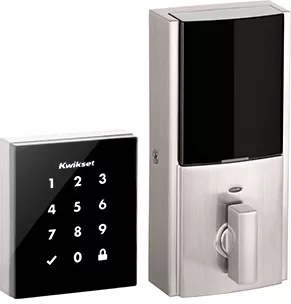
This sleek, touchpad smart lock offers a strong deadbolt in a beautiful, modern design. It also comes with a back-up power source, so you do not have to worry about losing access to your apartment if the lock’s batteries fail.
Yale Assure Lock with Z-Wave Plus, $230
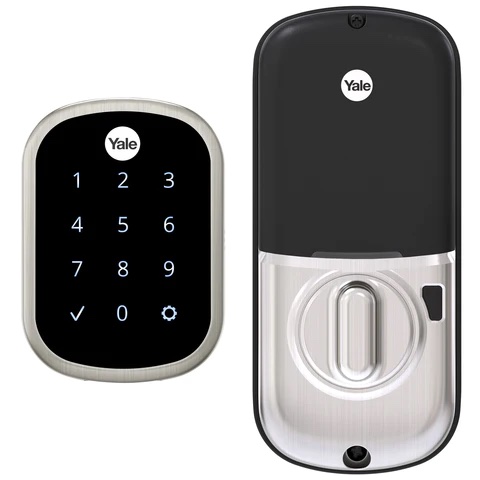
This Z-wave touch screen deadbolt replaces your original lock’s hardware and is compatible with smart home systems like SmartThings, Wink, and Ring.
Schlage Connect Smart Deadbolt with Z-Wave Plus, $219
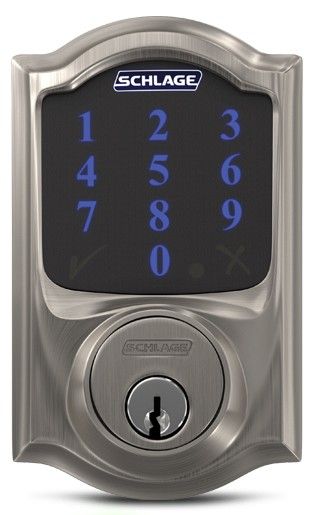
Made by trusted lock maker Schlage, this smart deadbolt offers both a keypad and a traditional lock in one unit. If someone tries to tamper with your lock, the loud, built-in alarm will sound, giving your extra security protection. It is compatible with Amazon Echo and Alexa voice command, as well as SmartThings, Wink, and Ring.
The Best Smart Locks Using Wi-fi
Yale Assure Lock Touchscreen, Wi-fi Smart Lock, $290

Do you have Apple HomeKit, Amazon Alexa, or Google Assistant? If so, the Yale Assure Lock Touchscreen Wi-fi Smart Lock may be the one for you. This device can connect to your smart home software of choice, integrating your new lock seamlessly with the rest of your devices.
August Wi-Fi Smart Lock, $230

With a sleek and low-profile design, this built-in Wi-fi smart lock uses your existing deadbolt. It is compatible with Alexa, Google Assistant, and Siri.
Wyze Lock, $130

This budget friendly option is a great value for the price. Like the August Wi-fi Smart Lock, the Wyze Lock fits over your existing deadbolt, making it one of the easiest smart lock options to install. It is Alexa and Google Home compatible.
The Best Smart Locks Using Zigbee
Finally, here are some recommendations for smart locks compatible with Zigbee.
Schlage Connect Smart Deadbolt with Zigbee, $201

This lock is the same as the Schlage Connect Smart Deadbolt with Z-wave, except it uses the Zigbee protocol. It is compatible with Amazon Echo and SmartThings.
Kwikset 916 Deadbolt, $117
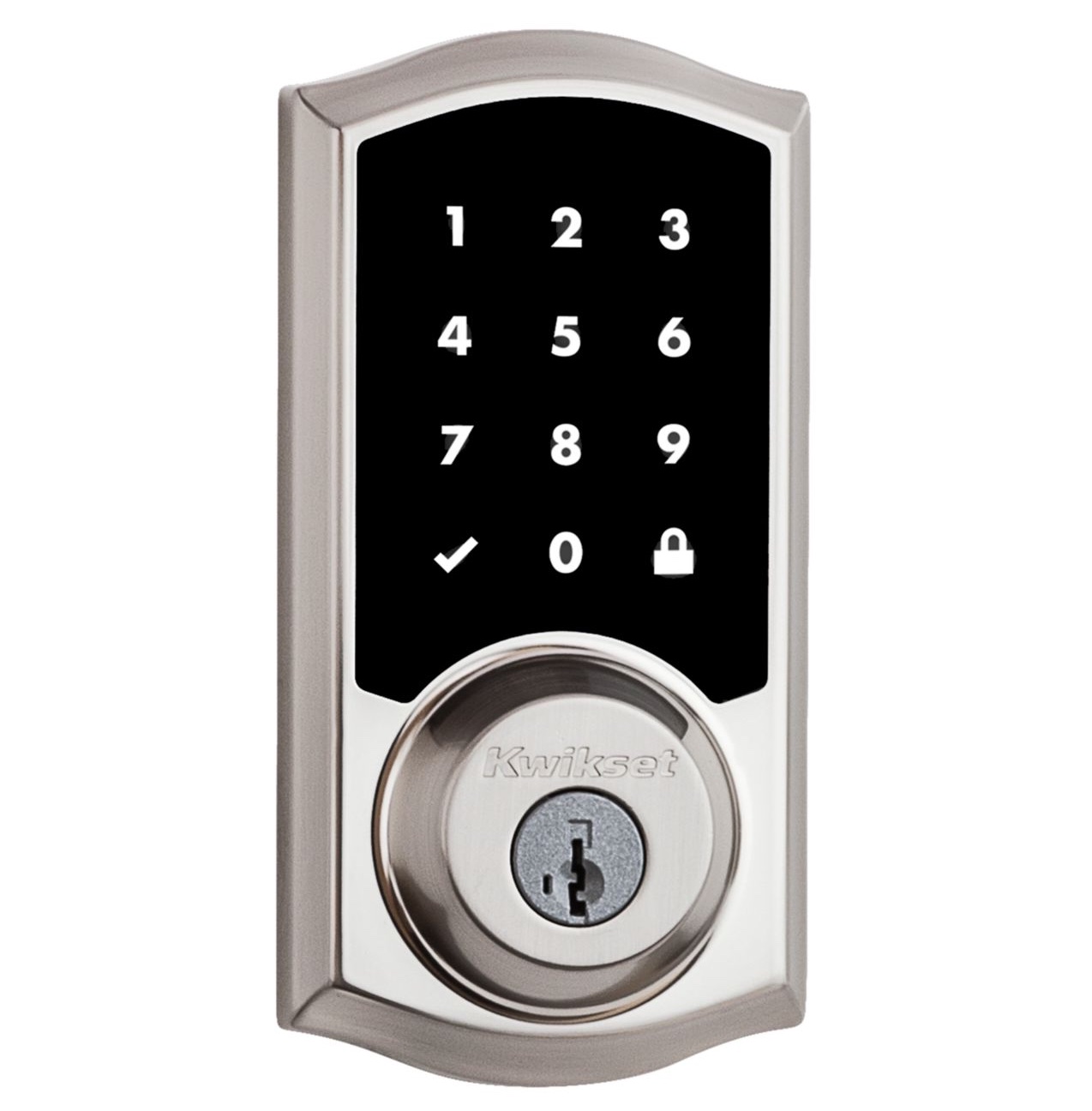
This Zigbee smart lock has both a touchscreen and a traditional lock. It’s a great option for smart locks on a budget and is compatible with SmartThings and Alexa.
Take your Apartment to the Next Level with Smart Home Technology
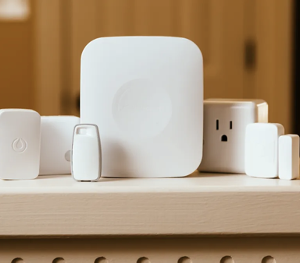
Once you have decided on a smart lock for your apartment door, you can research other forms of Smart Home technology like hubs, video security cameras and doorbells, smart lightbulbs, and smart speakers. The home automation industry is contestant expanding and innovating, so your smart lock can be just the first step on making your apartment into your ideal smart home.
Looking to learn more about how smart locks and smart home technology fit into the New York City real estate market?
Contact a real estate expert at NewDevRev today!
- Categories:
